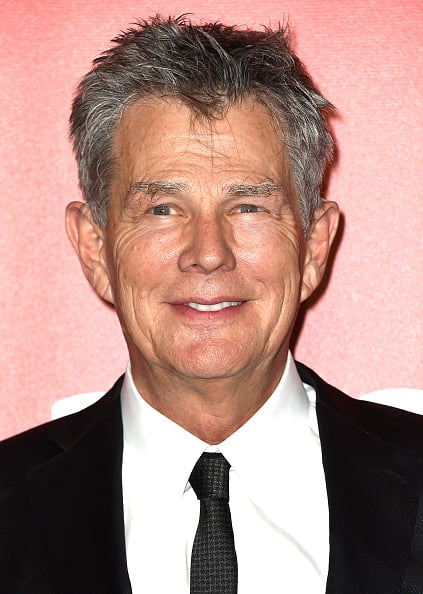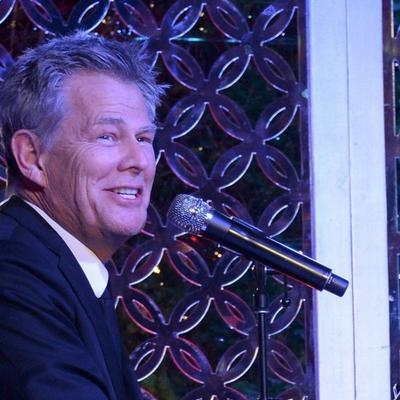David Foster at a Glance
- Categories: Business, Business > Producers
- Net Worth: $150 Million
- Birthdate: Nov 1, 1949 (74 years old)
- Birthplace: Victoria
- Gender: Male
- Profession: Record producer, Songwriter, Composer, Television producer, Actor, Musician, Singer, Music Arranger, Keyboard Player, Film Score Composer
- Nationality: Canada
David Foster Net Worth: A Look at the Life and Career of the Music Mogul
David Foster, the celebrated Canadian musician, record producer, composer, singer, songwriter, and arranger, has amassed a substantial net worth of $150 million. His career spans several decades, marked by an extraordinary ability to discover and nurture musical talent, coupled with a knack for producing some of the world’s most beloved artists. This article delves into the life, career, and net worth of David Foster, exploring his early life, career milestones, and the impact he has had on the music industry.
Early Life and Musical Beginnings
David Walter Foster was born on November 1, 1949, in Victoria, British Columbia, Canada. His upbringing was rooted in a supportive family environment, with his father, Maurice (Maury) Foster, working as a maintenance yard superintendent and his mother, Eleanor May (née Vantright), a homemaker. Foster’s musical journey began early, displaying a passion for music that would define his life. At the young age of 13, in 1963, he enrolled in the music program at the University of Washington, a testament to his precocious talent and ambition. The following year, he began honing his skills and seeking opportunities to perform. His big break came in 1965 when he auditioned for the role of bandleader in an Edmonton nightclub. The club was owned by the renowned jazz musician Tommy Banks, who took Foster under his wing, becoming a mentor and guiding him through the complexities of the music business. This early mentorship was crucial in shaping Foster’s career and provided him with invaluable insights into the industry.
Foster’s career trajectory involved diverse experiences that helped broaden his horizons and sharpen his musical abilities. After playing with Ronnie Hawkins, he became a member of a backup band for Chuck Berry in Toronto. This experience exposed him to different musical styles and performance techniques. In 1974, Foster moved to Los Angeles with his band Skylark, seeking to capitalize on the flourishing music scene there.

Getty
Career Highlights and Collaborations
Foster’s career is a tapestry of impressive collaborations, chart-topping hits, and industry accolades. His work as a keyboardist for the pop band Skylark marked an early success, with their song “Wildflower” reaching the top ten in 1973. After Skylark disbanded, Foster’s career shifted gears when he remained in Los Angeles, forming the band Airplay with Jay Graydon. This new venture allowed him to further explore his musical vision and connect with other talented musicians. In addition to playing his own music, Foster’s role as a songwriter, producer, and arranger for a variety of projects became increasingly prominent.
- Earth, Wind & Fire Collaboration: He contributed to Earth, Wind & Fire’s album “I Am” (1979) as a studio player and arranger, and co-wrote six of the album’s songs. The track “After the Love Has Gone,” which Foster wrote with Graydon and Bill Champlin, earned a Grammy Award for Best R&B Song in 1980.
- 1980s Production Achievements: The 1980s were a prolific period for Foster, marked by successful collaborations with many iconic artists. He worked on multiple Chicago albums, co-writing and producing songs like “Forever” (1985) and “Heart to Heart” (1982) for Kenny Loggins. Foster also contributed to Kenny Rogers’ albums “What About Me?” (1984) and “The Heart of the Matter” (1985).
- Film Scores and Theme Songs: Foster’s talents extended to film scores. He composed the score for “St. Elmo’s Fire” (1985) and wrote songs for “The Secret of My Success” (1987) and “Stealing Home” (1988). His composition “Winter Games” became the theme song for the 1988 Winter Olympics in Calgary, Alberta.
- 143 Records and Warner Brothers: In 1995, Foster secured a deal with Warner Brothers to establish his boutique label, 143 Records, as a joint venture. One of the first acts signed was the Irish folk-rock band The Corrs. However, Foster later sold the label back to Warner and became a senior vice president.
- 1990s Productions: Notable songs produced by Foster in the 1990s include “The Power of the Dream,” the official song of the 1996 Summer Olympics, co-written with Babyface, “Un-Break My Heart” by Toni Braxton, “Because You Loved Me” by Celine Dion, and “Have You Ever?” by Brandy.
Foster’s success in the music industry is reflected in the fact that he has been awarded 16 Grammys from 47 nominations. Furthermore, he has been instrumental in selling over 500 million albums for the artists he has worked with throughout his career. He has discovered and/or produced some of the most well-known artists in the world including Michael Bublé, Josh Groban, Celine Dion, Mariah Carey, Whitney Houston, Andrea Bocelli, Chicago, and Toni Braxton.
Impact and Legacy in the Music Industry
David Foster’s impact on the music industry is undeniable. His exceptional ability to identify and nurture talent has left an indelible mark on the careers of numerous artists. He has consistently demonstrated an exceptional grasp of musical arrangement, production, and songwriting. His approach to music-making has influenced countless aspiring musicians and producers. Foster’s legacy is defined not only by the commercial success of the artists he has worked with but also by his dedication to artistic excellence and innovation. Throughout his career, Foster has demonstrated a remarkable ability to adapt to changing musical trends, incorporating diverse influences into his productions. This adaptability has allowed him to remain relevant and influential in the industry for several decades. His contributions to the music world extend beyond his studio work, as he has also been a mentor and role model for many emerging artists. Through his guidance and support, he has helped shape the future of music, inspiring others to pursue their creative passions.
Personal Life, Philanthropy, and Real Estate
Foster’s personal life has been the subject of public interest. He has been married five times and has five biological daughters and seven grandchildren. His marriages to B.J. Cook, Rebecca Dyer, Linda Thompson, Yolanda Hadid, and Katharine McPhee have all been significant chapters in his life. Currently, he is married to singer/actress Katharine McPhee. Outside of his personal life, Foster has been deeply involved in philanthropy. He has raised and donated hundreds of millions of dollars to various charitable causes, primarily through the David Foster Foundation. The foundation focuses on supporting children fighting life-threatening medical conditions, demonstrating Foster’s commitment to giving back to society.
Foster’s real estate holdings reflect his success and status. In 2014, he and his fourth wife, Yolanda, sold their Victoria penthouse for $5 million, followed by the sale of their Malibu estate for $19 million in 2015 (originally listed for $27.5 million). In 2020, he listed his Wilshire Corridor condominium for sale at $3.995 million. He and McPhee purchased a mansion in LA’s Brentwood neighborhood in 2021 for $7.1 million. These real estate transactions provide insights into his lifestyle and financial standing.
Conclusion
David Foster’s journey from a young musician in British Columbia to a globally recognized music mogul is a testament to his talent, perseverance, and business acumen. His impressive net worth of $150 million is a reflection of his significant contributions to the music industry, including his work as a producer, songwriter, and mentor. His legacy will endure through the countless albums he has produced, the artists he has nurtured, and his philanthropic endeavors, cementing his status as one of the most influential figures in contemporary music.

